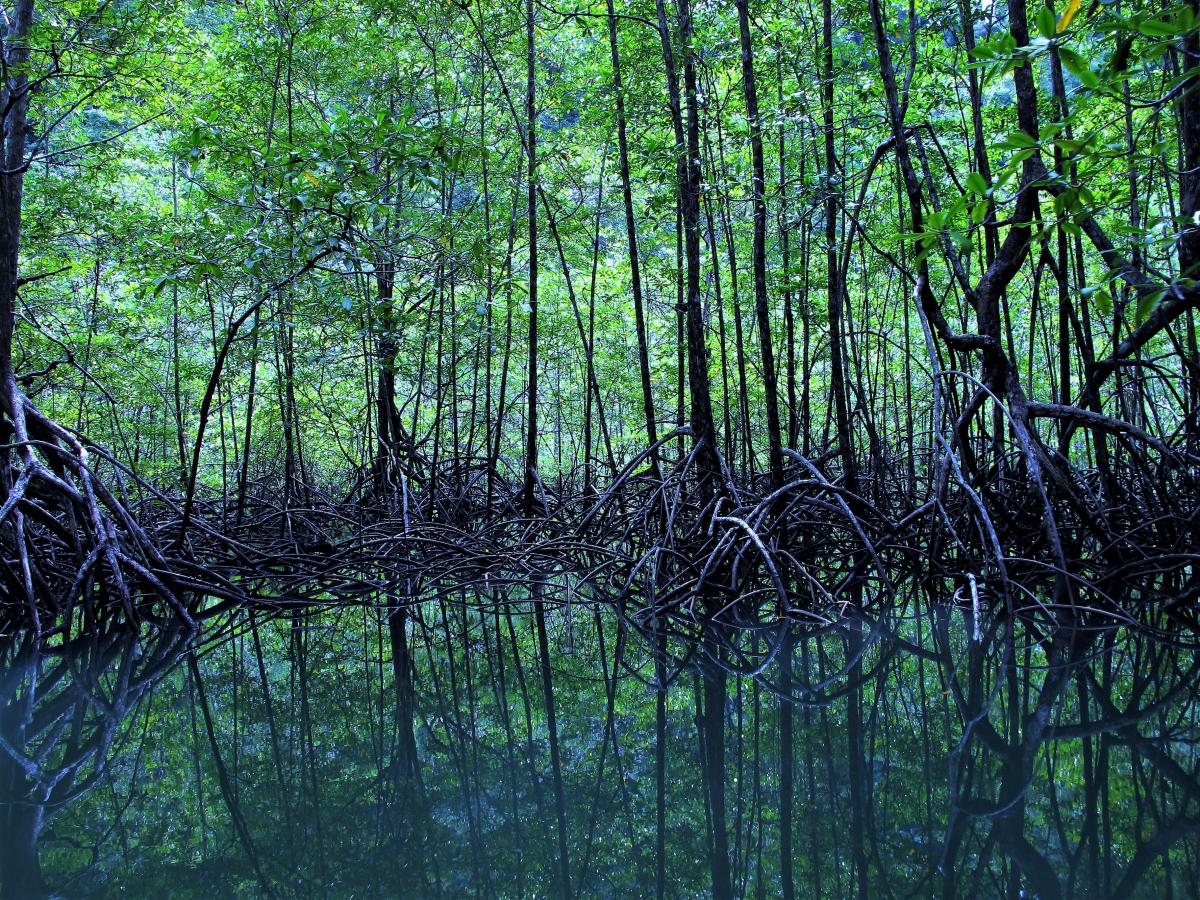Women to lead actions for climate change adaptation and mitigation
Fauzia Bilqis Malik, Programme Coordinator, IUCN Pakistan
Pakistan is highly vulnerable to the impacts of climate change, with extreme weather events affecting millions of people each year. To address this, the government of Pakistan has partnered with the International Union for Conservation of Nature and other organizations to develop a national climate change gender action plan (ccGAP), with the goal of ensuring gender-responsive national actions across six priority sectors.
Pakistan ranks among the most vulnerable countries to the widespread and cross-sectoral impacts of climate change. The Global Climate Risk Index 2016 emphasizes that Pakistan is among those experiencing extreme weather events continuously and year after year. In 2014, for example, monsoons following periods of low rainfall affected 2.5 million people, destroying 130,000 homes and over 1 million acres of cropland.
With the Readiness-phase support from the Green Climate Fund (GCF) (2020-2021) and technical guidance from the International Union for Conservation of Nature (IUCN) and other key partners, the Government of Pakistan and its stakeholders have undertaken a project to build capacities and collaboration on gender and climate change issues through development of a national climate change gender action plan (ccGAP) to ensure gender-responsive national actions across the six priority sectors, under the national climate change policy of Pakistan. Paving the way for a gender-responsive project pipeline, this pilot effort enhances existing and nascent policy and programming, while elevating the country’s position as an international leader toward building inclusive sustainable development, climate action and resilience for all.
Despite considerable gains in human development, gender inequality limits widespread social, political and economic security and well-being. According to the World Economic Forum’s Global Gender Gap Report 2022, for example, Pakistan ranks 145 out of 146 countries worldwide. Pakistan recognizes that climate change affects women and men differently and that women and men have distinct capabilities as agents for change toward effective adaptation and mitigation. Narrowing the gender gaps is essential to build climate preparedness and resilience for all. The Honorable Minister for Climate Change, Senator Sherry Rehman, also shared her views in Express Tribune on May 6, 2022 saying “Women suffer more from the impacts of Climate Stress as compared to their male counterparts in developing countries and a policy which focuses on gender mainstreaming and adaptation efforts to the impacts of Climate Stress must also be rolled out.”
A multi-stakeholder, cross-sectoral and participatory approach was adopted to develop the Climate Change Gender Action Plan (ccGAP), a cross-sectoral national action plan, building institutional and stakeholder capacity on gender and environment linkages, synergizing national commitments for gender and climate action, and developing innovative projects that empower women and men alike as agents for change, strengthening Pakistan’s readiness for climate action and resilience. Key stakeholders involved in the process included government, civil society, academia, researchers, private sectors and individual experts.
The project had two key outcomes including the development of the ccGAP while strengthening institutional capacity and building the gender mainstream pipeline of projects. Key outcomes expected were an effective gender equality coordination mechanism and improved knowledge and capacity at the National Designated Authority (NDA) / Ministry of Climate Change to guide and support other ministries in the implementation of the proposed actions. It also involved women’s organizations and gender focal points in building capacities as well as implementation of the climate change actions. In addition to the development of the ccGAP, the complete process was also documented for dissemination. Sectoral gender gap analysis was also an important bench mark.
Development of the ccGAP itself was a learning experience, through an exchange of ideas, building capacities, and challenging stereotypes. A gender gap analysis was conducted across six priority sectors including agriculture and food security, forest and biodiversity, disaster risk reduction, water and sanitation, integrated coastal management, and energy and transport. The analysis reflected challenges and identified key actions. The action plan was built around four key themes including capacity building, policies and management mechanisms, gender balance, and adaptation and mitigation measures. The ccGAP strongly recommends gender segregated data to reflect upon the indicators periodically and reflect progress after the implementation of ccGAP.
The process engaged and consulted a number of representatives of key stakeholders from the federal as well as province level. Similarly, after the national launch the ccGAP was also launched with the provinces through their Planning and Development Departments for wider understanding and to incorporate in their planning process. During the provincial sessions, it was also revealed that in some cases an institutional mechanism on gender mainstreaming and climate change adaptation and mitigation exists, but both are not connected to each other.
Under Pakistan’s first ccGAP implementation, various initiatives are being planned. IUCN is disseminating and promoting the document to encourage gender mainstreaming in the upcoming projects of government and civil society. IUCN, jointly with the Embassy of France and AFD, launched the first Gender and Climate Award to recognize and acknowledge the leading women and women’s organisations for taking the lead on gender and climate impact. At various levels, the government has shown interest and ensured support in gender mainstreaming across their programme. It is a highly promising initiative, especially if we all collectively keep the ball rolling.
The national ccGAP has been developed in line with the international commitments of Pakistan especially UNFCCC, NDCs and SDGs. The action plan is in line with the UNFCCC Gender Action Plan that includes capacity building, knowledge sharing and communications; Gender building, participation and women’s leadership; coherence across UNFCCC and overall UN; gender responsive implementation and means of implementation; monitoring and reporting.


